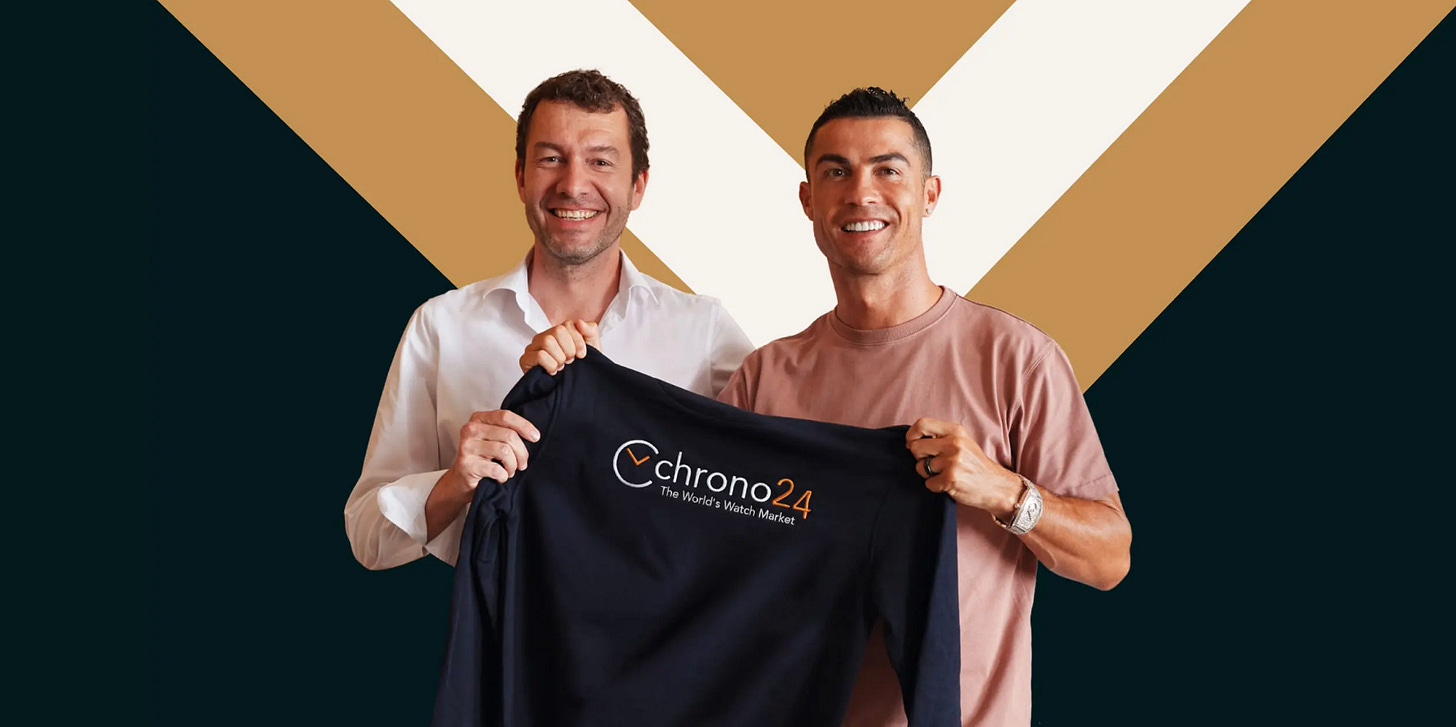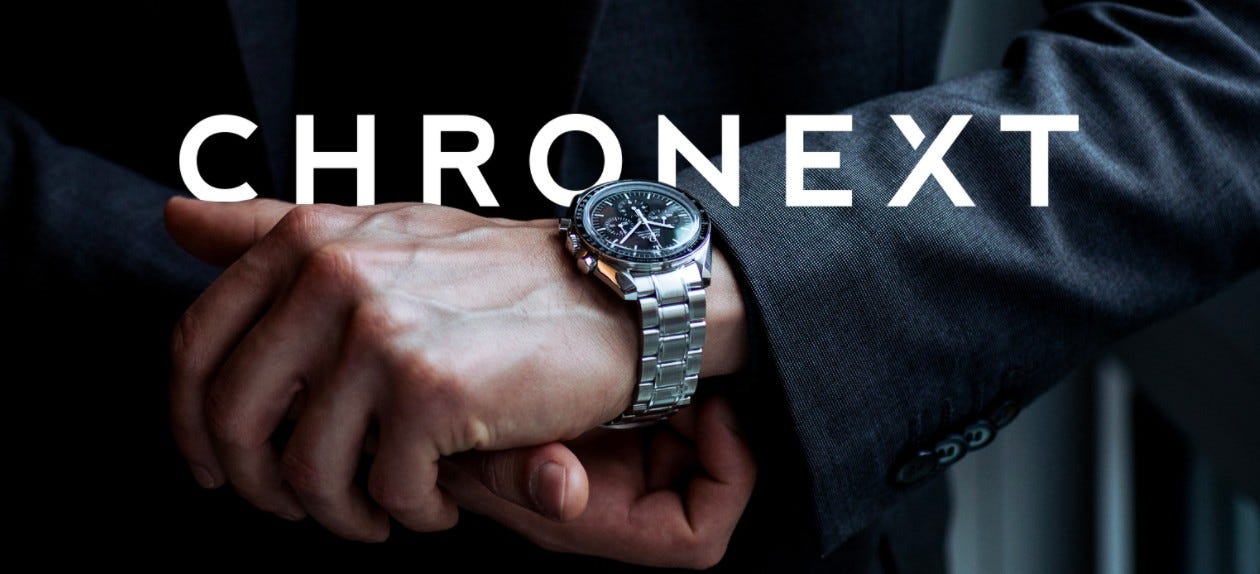Cristiano Ronaldo’s Game-Changing Investment: Chrono24 Hits Billion-Euro Milestone
Cristiano Ronaldo invests in Chrono24, taking the company to the value of €1 billion. Will an IPO be the next step for marketplaces?
The big news this week was Cristiano Ronaldo's investment in Chrono24.
The stake taken over by the Portuguese champion is not known but thanks to his capital contribution the company came to be worth 1 billion euros, effectively becoming a unicorn.
In the financial sphere these startups are referred to by this mythological animal because like unicorns these companies are exceptional creatures with mythical connotations.
This is another indication of how much the watchmaking world is working in the right direction and how much it is growing year after year.
Cristiano Ronaldo, who through his company CR7 SA invested in Chrono24, is just the latest in a series of major investors in the German company.
In 2015, Chrono24 was funded in a Series B round for $40 million by private equity firm Insight Partners. It then raised $47 million in 2019 from Gianni Serazzi, former head of Richemont, and Alberto Grignolo, formerly of Yoox-net-a-porter.
This was followed in August 2021 by investments from Bernard Arnault with his family's Aglaé ventures, General Atlantic, and again from Insight partners and Sprints capital, which together led the $118 million funding round in the Series C round.
When we talk about Series A, B, C funding rounds, we are referring to a venture capital raising that occurs in the growth stage of a startup. Investment rounds are divided into: Early Growth (Round Series A and Series B) Sustained Growth (Round Series C, D, ...)
Chrono24 is not the only trading platform that famous sportsmen have invested in.
In 2021 WatchBox raised $165 million in its latest funding round thanks to capital from basketball legend Michael Jordan, champion Giannis Antetokounmpo and Milwaukee Bucks owner Marc Lasry, Phoenix Suns stars Chris Paul and Devin Booker, and Wall Street investor Bill Ackman.
WatchBox has raised $260 million since its founding in 2017. Although the company has not disclosed its latest valuation, there are rumors that it too could hover around $1 billion.
In an interview with CNBC in 2021, WatchBox CEO Justin Reis said the company may seek a stock market listing in the future. "I think our goal is to scale and grow," he said. "If that means adopting an IPO strategy in the next two years to help us facilitate that process, we will certainly consider it."
For all these companies, IPO is becoming an increasingly serious prerogative.
Between 2020 and 2021, Chronext attempted IPOs twice. The platform's intention was to issue new shares worth about 250 million Swiss francs and also place investors' existing shares in an initial public offering (IPO) on the Swiss stock exchange SIX. However due to unfavorable financial market conditions the IPO has been postponed.
It is not ruled out that there may be another attempt at going public in the second half of this year with a new IPO that could raise the company's valuation to 1 billion.
In April 2023, a group of Swiss investors acquired control of the marketplace, appointing Philippe Roten as its new CEO. Roten has more than 20 years of experience in the watch industry and has held numerous international executive positions, including at LVMH and Swatch Group. It will therefore be interesting to observe how Chronext will change with this new management.
A stock market listing has already been resorted to for years by Watches of Switzerland, Britain's biggest retailer, which in 2019 listed 34 percent of the company aiming to raise about £220 million for a total valuation of £647 million.
While in previous years all of these companies have benefited from the soaring growth of the secondary market for luxury watches, recent months of falling prices have brought some difficulties.
For example, Chrono24 in January 2023 cut 13 percent of its workforce due to the strong fluctuations in the market.
Against this backdrop, all these companies could implement an IPO so as to seek help from the public market to survive a more difficult market situation.
Related posts:






